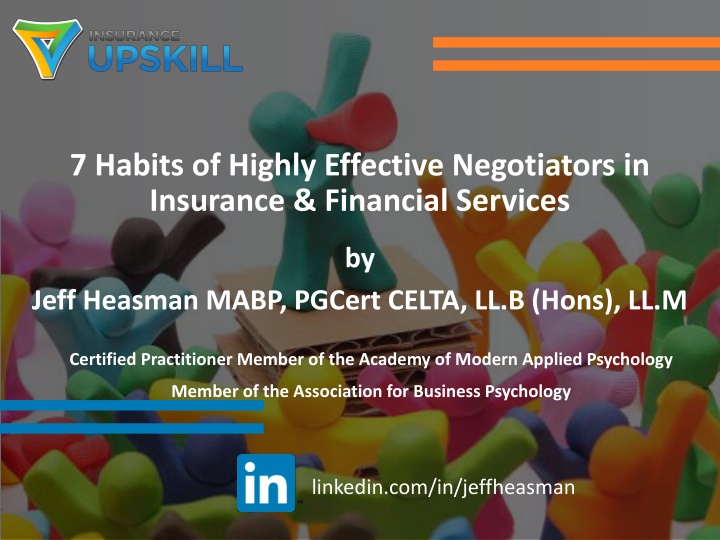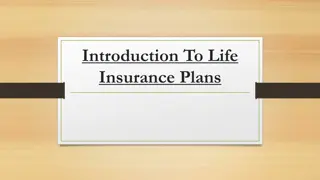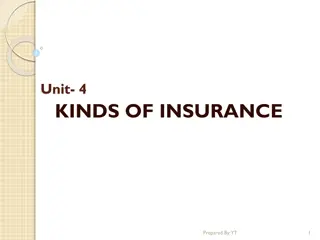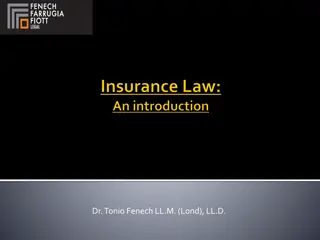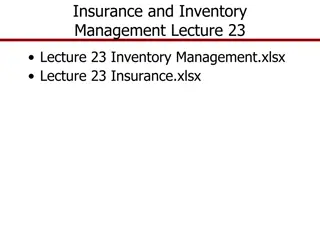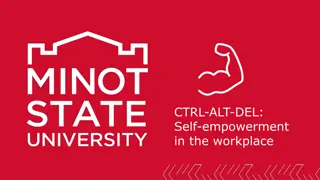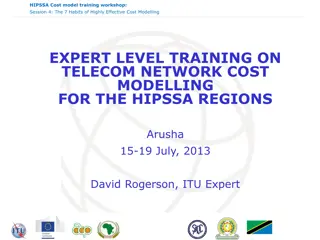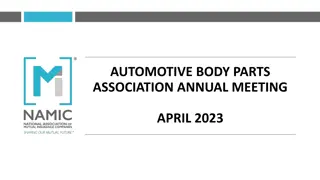7 Habits of Highly Effective Negotiators in Insurance & Financial Services
Learn the key elements of negotiation processes, discover the 7 habits of successful negotiators, and gain confidence for future business dealings through effective strategies. Topics covered include preparation, seizing power, controlling emotions, critical thinking, active listening, and honoring commitments.
Download Presentation

Please find below an Image/Link to download the presentation.
The content on the website is provided AS IS for your information and personal use only. It may not be sold, licensed, or shared on other websites without obtaining consent from the author.If you encounter any issues during the download, it is possible that the publisher has removed the file from their server.
You are allowed to download the files provided on this website for personal or commercial use, subject to the condition that they are used lawfully. All files are the property of their respective owners.
The content on the website is provided AS IS for your information and personal use only. It may not be sold, licensed, or shared on other websites without obtaining consent from the author.
E N D
Presentation Transcript
7 Habits of Highly Effective Negotiators in Insurance & Financial Services by Jeff Heasman MABP, PGCert CELTA, LL.B (Hons), LL.M Certified Practitioner Member of the Academy of Modern Applied Psychology Member of the Association for Business Psychology linkedin.com/in/jeffheasman
Learning objectives By the end of the session, participants will be able to: understand the key elements of a negotiation process. identify the 7 habits of a highly effective negotiator. implement a strategy to negotiate with confidence in future business dealings.
The 7 Habits Highly effective negotiators habitually: 1) prepare. 2) seize power. 3) control emotions. 4) thinking critically. 5) actively listen. 6) communicating clearly and effectively. 7) honour their word.
Preparation Recognise when the process begins. Creating and claiming value. To engage in integrative negotiations, you need to identify your partner s and your: needs interests goals Trust is built through frequent communication and information sharing.
BATNA. Reservation Point. ZOPA. Interests: distributed integrative common
Seizing power, handing over control Anchoring. Negotiating by diminishing scale. MESOs.
Critical Thinking 1. Focusing on obtaining the right solution rather than trying to prove they are right. 2. Not rushing the decision making process and weighing up the options. 3. Verifying information (listening out for phrases like, it is generally accepted etc.). 4. Critical thinking will lead to the need to make decisions. Each decision has four stages: Observe: what does the information from all sources reveal? Orient: analyse the information to update your situation. Decide: select the correct path to reach your goal. Act: implement the decision as soon as possible.
Active listening The 4 levels of communication. Mirror principle. Communication is a partnership. Don t ghost issues in emails. The average rate of speaking is 125 words per minute. We have the capacity to understand up to 400 words per minute. Don t listen to reply!
Clear and effective communication Plain language: paraphrase complex information. Don t use veiled threats (unless ). Stick to facts rather than opinions. The following statement expresses an opinion: I don t think that is correct. You can turn this into an observation based on fact: There are inconsistencies in what you have said because
Honour your word This habit really speaks for itself. It creates a trusting and open environment. Don t use empty threats / ultimatums. You must execute promises made and within the timescales agreed.
Restatement of the 7 habits 1) Preparation. 2) Seizing power. 3) Controlling emotions. 4) Critical thinking. 5) Active listening 6) Clear and effective communication. 7) Honouring your word.
Restatement of learning objectives During this session, we have: understood the key elements of a negotiation process. identified the 7 habits of a highly effective negotiator. learnt how to implement a strategy to negotiate with confidence in future business dealings.
